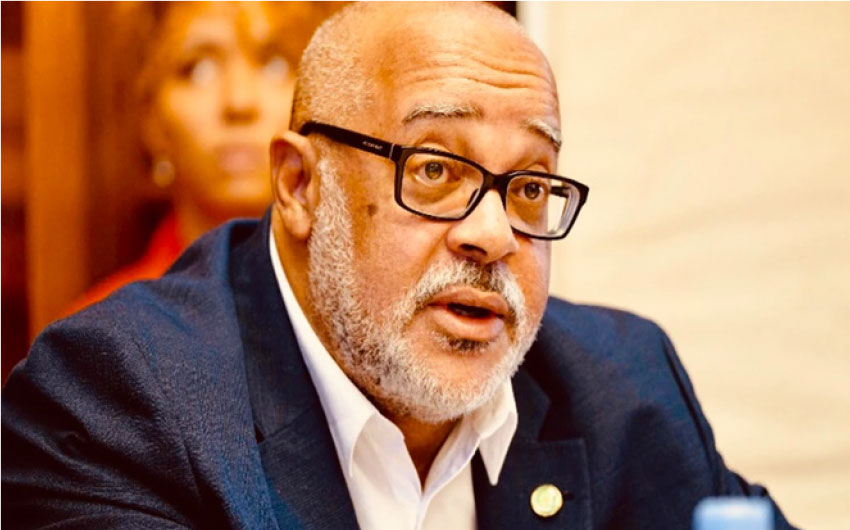Over the past decades, regional governments have been grappling to curb the alacrity of criminal activity that permeates within the borders of these territories.
Reports indicate that young people, from 17 to 29 years, account for about 80 % of crimes committed in the region and they are both the primary victims and perpetrators of those crimes. In the sub-region, social intervention is being explored as an alternate way of bringing about social order and stability to the islands.
One of the initiatives touted to help stem the crime flow is a rehabilitation program geared to help recidivists return to society as meaningful citizens, and make a worthwhile contribution to the overall socio-economic developmental sphere.

Director-General of the Organisation of Eastern Caribbean States (OECS), Dr. Didacus Jules, is adamant that measures can be taken to better tackle this critical component. Speaking at an earlier online media forum – on Social Protection in the sub-region, he said, the OECS secretariat is open to helping regional administrators address the matter.
“This issue is about making them talk about their stories, so we get from them what led them to do the things that they did and what caused them to be delinquent,” Dr. Jules noted.
“And while working through that process, they come to the realization …and we’ve had really outstanding examples of young people doing extraordinary things,” he added. “So when they come out they are already reformed, but not just reformed but they are skilled and re-tooled for a different future.”
He said the role of the sub-regional council does not entail taking disciplinary action against offenders, but rather engaging in a process of social intervention and discourse in being able to reach out to those persons.
Dr. Jules stated that it is important to identify those young people who are “doing extraordinary things”, especially where they come from vulnerable spaces or disadvantaged backgrounds.
“Because by projecting them as an example of what is possible, we help to encourage other young persons to follow that example,” he declared.
The OECS executive recalls that there have been instances where these persons have been put in touch with others, and “they’ve served as workshop leaders, as feature speakers in youth events and so on.”
Citing the need for greater promotion and publicity of these ‘exemplary stories’ involving young persons in the sub-region, Dr. Jules explained that the OECS website covers a wide global platform that is accessible to several business entities, such as the airline industry, entrepreneurs, and others. “So when we put these messages out they go far and wide,” he added.
“We have had young people become ‘30 and Under-30’ entrepreneurs because they were showcased through the OECS,” asserted Dr. Jules. He adds that the OECS has direct links to a reputable global business magazine, which highlights such stories.
Other measures also identified from the social discourse, entailed such as involving the input of elders from the respective communities to mitigate disputes and focusing on holding more community hall discussions that directly impact the residents.
Human and Social Development in the Eastern Caribbean are regarded as one of the key challenges that the OECS Commission has to address.
According to the OECS secretariat, “Human and Social development policies aim to improve the well-being and quality of life of all citizens in the OECS and to enable them to reach their full potential.”
It further notes: “Hence the OECS Commission is collaborating with its Member States along with international agencies such as the United States Agency for International Development (USAID), or the United Nations Children’s Fund (UNICEF) to review, update, amend and establish laws on multiple matters including; social protection, social safety net programmes, child abuse, juvenile justice, domestic violence and care for the most vulnerable groups of our society (i.e.: elderly, disabled persons, etc…).”
In this vein, the OECS pursues four strategic objectives with regard to Social Development in the Eastern Caribbean, which includes –
Facilitating effective social protection responses;
Building human and community resilience; Facilitating social reintegration and inclusive communities, and Human and Social Development projects.





